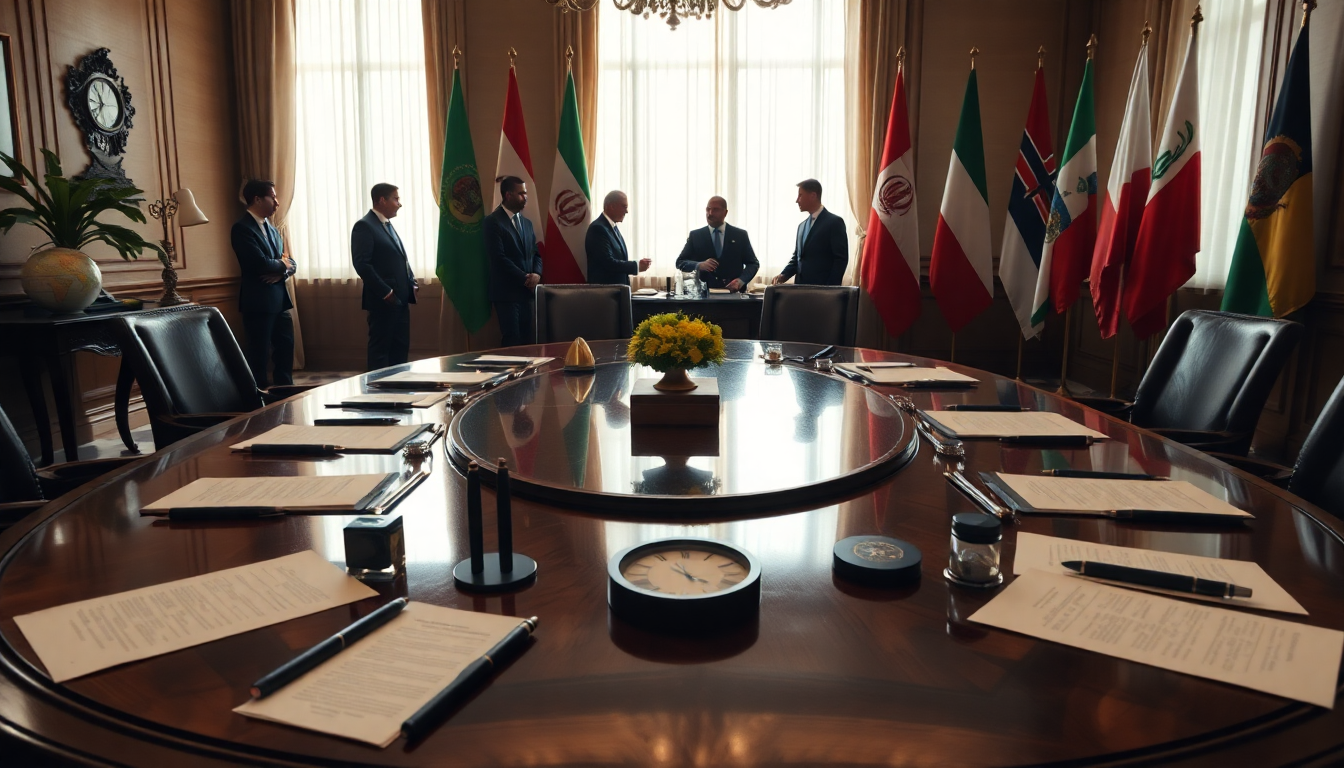Table of Contents
The current state of diplomacy around Iran’s nuclear ambitions is anything but straightforward. It’s a tangled web of international relations filled with rising tensions and ongoing negotiations. Just recently, communications between Brussels and Tehran have picked up after a pause triggered by military actions from the U.S. against Iranian nuclear sites. There’s a real urgency to get back to the negotiating table, especially as the EU aims to mediate a resolution that could not only ease regional tensions but also breathe new life into international agreements.
Restarting Diplomatic Talks
EU foreign policy chief Kaja Kallas has made a strong appeal for Iran to restart discussions aimed at curbing its nuclear program. During a recent phone call with Iranian Foreign Minister Abbas Araghchi, Kallas stressed the need for immediate dialogue and highlighted the importance of collaborating with the International Atomic Energy Agency (IAEA). The EU’s willingness to facilitate these talks underscores its role as a mediator in a situation that carries heavy geopolitical weight.
Yet, the backdrop of mistrust makes these diplomatic efforts quite challenging. Araghchi has voiced Tehran’s skepticism towards the United States, a sentiment that has been amplified by Iran’s recent legislative moves suggesting a potential withdrawal from the Non-Proliferation Treaty (NPT). These actions serve as a stark reminder of how fragile peace talks can be, as they reflect the hurdles European entities face in trying to bridge the gap. Additionally, criticisms from Iranian leadership aimed at certain European nations and the IAEA’s director general reveal a broader discontent that threatens cooperative efforts.
Heightened Tensions and Hostilities
The situation has been further complicated by an increase in hostilities between Iran and Israel, marked by a series of military strikes and retaliations. Israeli Prime Minister Benjamin Netanyahu’s recent claims of victory in operations targeting Iran’s nuclear capabilities signal a serious escalation in the conflict. While some experts suggest that Iran’s nuclear program may only be temporarily delayed, the possibility of a more extended confrontation looms large.
Amid these military escalations, a ceasefire brokered by former U.S. President Donald Trump has held, reflecting ongoing diplomatic efforts to maintain a delicate peace. Netanyahu’s upcoming trip to the U.S. highlights the importance of international diplomatic channels in addressing these issues. Leaders from France and Russia have also chimed in, advocating for a diplomatic resolution to the crisis surrounding Iran’s nuclear ambitions and asserting that military solutions aren’t sustainable in the long run.
The Role of International Actors
The involvement of global powers in this situation is crucial. The EU’s push for negotiations, alongside the military strategies of Israel and the U.S., creates a complex landscape that requires careful navigation. As the international community watches with bated breath, the future of Iran’s nuclear program hangs in the balance, teetering on the outcomes of these sensitive diplomatic exchanges.
Looking ahead, the road to a peaceful resolution will likely demand significant compromises from all parties. For anyone trying to unravel the evolving story of Iran’s nuclear negotiations—and its broader impact on international relations—grasping these underlying dynamics will be essential. So, what’s next in this high-stakes game? Only time will tell, but staying informed is the first step.


